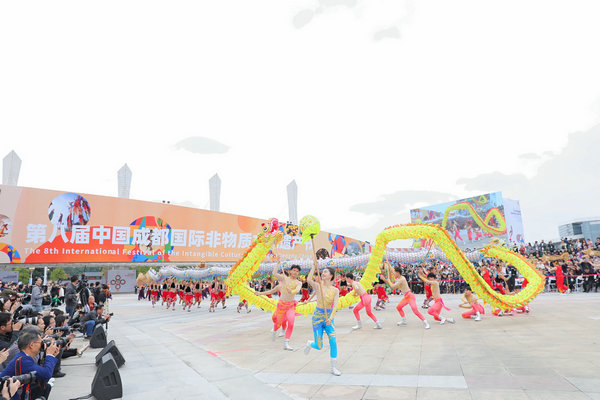

Chinese martial arts, African tribal dances, and Brazil's Samba set off waves of applause from the audience in mid-October.
They were among the exciting performances by 47 intangible cultural heritage troupes from all over the world that kicked off the 8th International Festival of Intangible Cultural Heritage in Chengdu, capital of southwestern China's Sichuan province.
The five-day event brought together around 6,000 inheritors and performers who engaged in more than 900 performances of intangible cultural heritage from 47 countries and regions.
It was co-hosted by the Ministry of Culture and Tourism, the Sichuan government and the National Commission of the People's Republic of China for UNESCO, and aimed to showcase China's efforts to implement the Convention for the Safeguarding of the Intangible Cultural Heritage and promote traditional Chinese culture.
Five exhibitions, including those featuring intangible cultural heritage in modern life, and international craftsmanship, were staged to expose public to the cultural charm, and thus promote the inheritance of heritage.
"The current global landscape is undergoing unprecedented change,... and the protection and inheritance of traditional culture is also under tremendous pressure," Song Qiu, deputy director general of the Sichuan culture and tourism department, said at the Chengdu Forum on Intangible Cultural Heritage, a major event of the festival.
"It requires all of us to work together to protect our intangible cultural heritage," Song said, adding that local authorities are willing to use the Chengdu forum as a platform to find new opportunities, reach new consensus, and seek new developments in the protection and inheritance of cultural heritage.